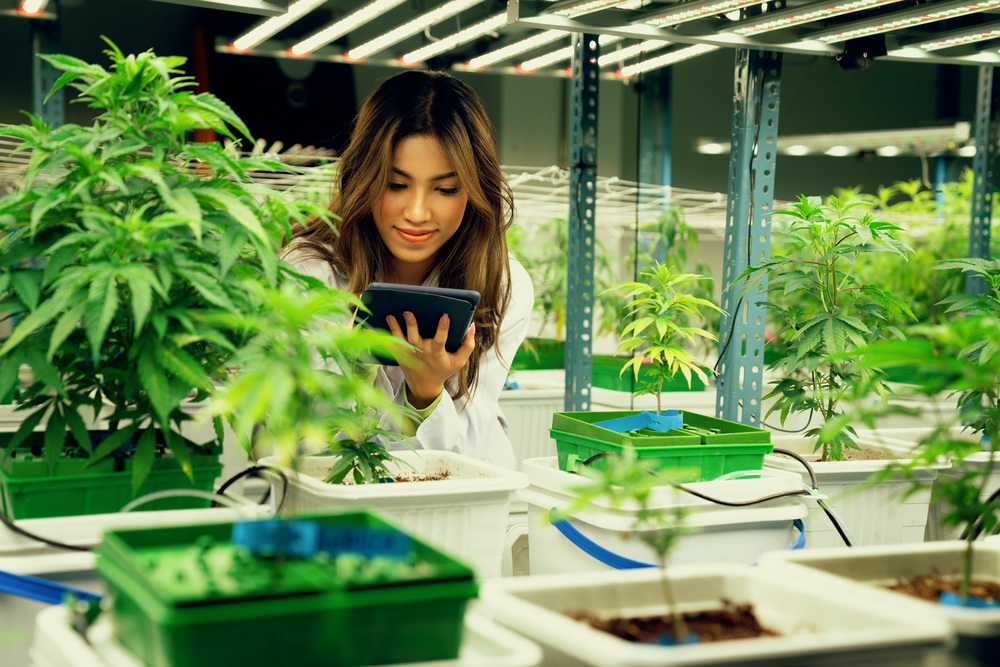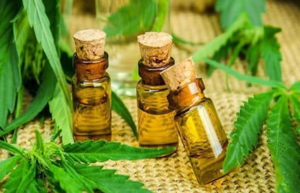Teen Cannabis Study Needs a Bit of Perspective
3 min read
Portrait of gratifying female scientist inspecting of cannabis plants in an curative indoor cannabis farm, greenhouse. Alternative medical medicine from cannabis in grow facility.
Opponents of cannabis legalization point to all sorts of arguments against something they believe is bad for America. An oft cited argument suggests that legalization will encourage more teens to use the drug. Well, numerous studies have shown otherwise. One of the more recent studies was funded by the National Institute on Drug Abuse (NIDA).
Although the study is good news to proponents of legalized cannabis, a little perspective is necessary. The research shows that teen cannabis use in three states remained steady regardless of teen exposure to legal marijuana. It did not fall. Therefore, the fact that we still have teens using marijuana means we still have a problem.
Two Decades of Data
The study in question was a longitudinal study that looked at cannabis consumption among adolescents from 1999 to 2020. The data was gleaned from three states: Washington, Oregon, and New York. It is important to note that Washington legalized marijuana in 2012. Oregon got on board two years later. New York did not join the party until 2021.
It is also important to note that we are talking about recreational marijuana, not medical cannabis. It makes a difference, according to the operators of the Deseret Wellness medical cannabis pharmacy in Park City, Utah. Where recreational use is prohibited, teens who choose to use marijuana must obtain it illegally.
Regardless, researchers found no statistical difference in cannabis use among 15-year-olds during the study period, irrespective of when marijuana was legalized in their individual states. Teens who lived more years under legalization than prohibition were no more less likely to consume cannabis than their peers living under the opposite scenario.
Illicit vs. Legal Marijuana
Now we get to the perspective part of the discussion. The fact that cannabis use among teens has remained steady despite legalization efforts clearly proves that teens were buying and consuming illicit marijuana prior to legalization. That is a crucial factor.
Teens consuming marijuana illicitly are no different than those who consume alcohol illicitly. That being said, any good news we can take from the NIDA study is limited. We can take comfort in the fact that teen consumption has not increased with legalization. But we should be concerned that it has remained stable because that means teenagers are still breaking the law and risking their health.
There Is a Legal Age
States with legalized recreational marijuana have all set a legal age for consumption. In most states, that age is 21. Anyone under the age of 21 purchasing and/or consuming marijuana is doing so illegally. That is not good no matter how you feel about pot legalization.
In addition, states have set legal consumption ages based on scientific proof that excessive marijuana consumption is harmful to still developing teenage brains. It is simply not safe for 15-year-olds to use pot.
Full Legalization Only a Matter of Time
Lurking in the shadows of the NIDA research is the unavoidable reality that full legalization is only a matter of time. Congress may not get a decriminalization bill to the president’s desk by the end of 2022. They may not get one done in 2023 or the year after. But at some point, all 50 states will have approved state-legal recreational pot. Washington will have no choice but to acquiesce when it happens.
Knowing this, the NIDA study results do not have much positive news to offer. We still have teens illicitly using marijuana and endangering their own health. Instead of celebrating the lack of a link between marijuana legalization and increased teen use, perhaps we should concentrate on reducing teen use across the board.







